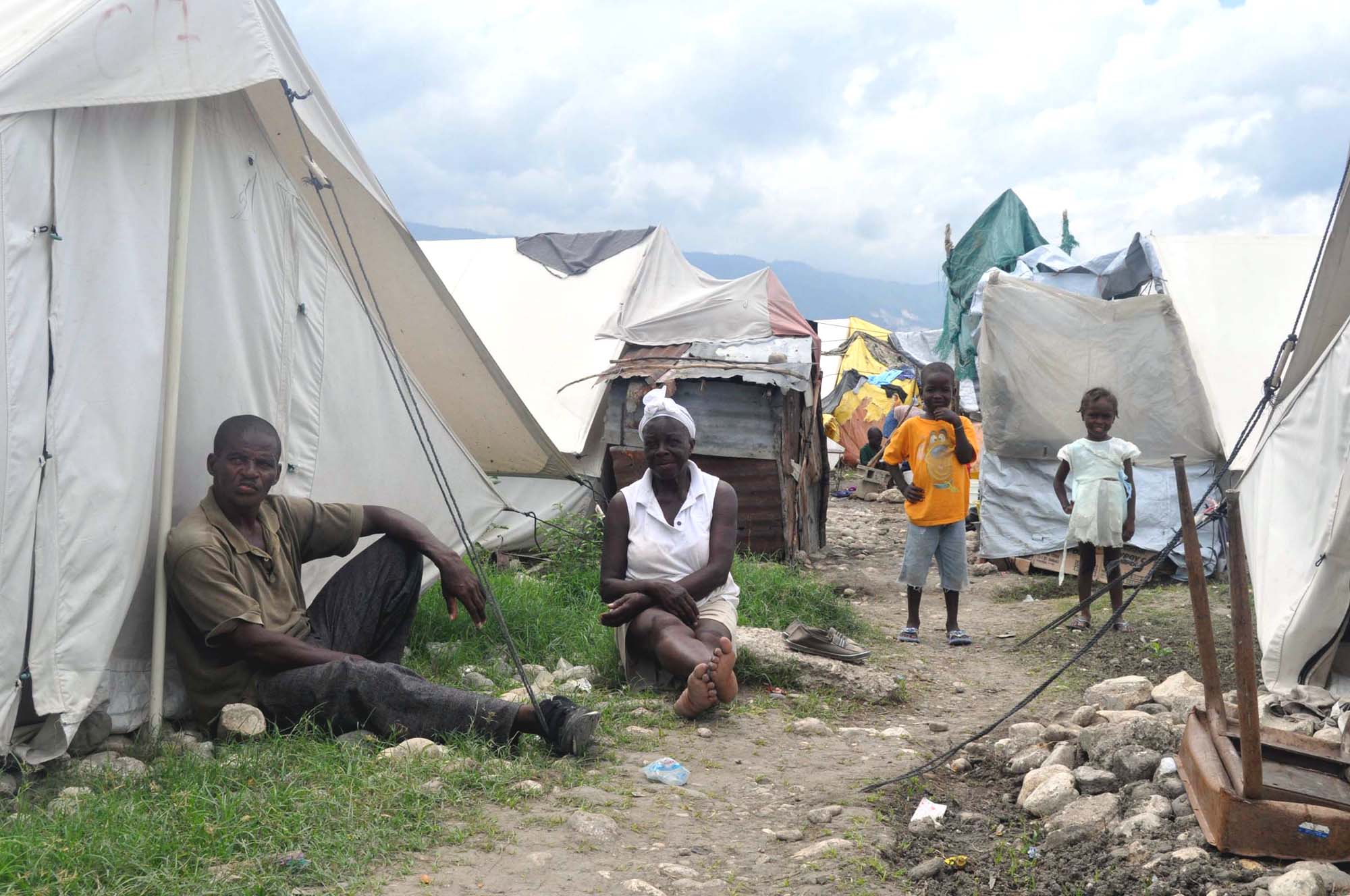
PORT-AU-PRINCE, Haiti (BP)–As a cholera outbreak and the aftermath of a tropical storm have returned Haiti to the international spotlight, the country’s sad plight is ever-apparent. Crumbled buildings seemingly untouched stand as monuments to the Jan. 12 earthquake.
Tent villages span as far as the eye can see. Children, without any school to attend, playfully prance around the streets and open fields.
Yes, life has resumed — cars whiz by and markets are abuzz. But so many of the people here are in desperation, their houses gone, seemingly without any way of restarting their lives.
Wanting to see the progress, or lack thereof, and to aid the efforts in a small way, I returned to Haiti for a brief trip (about eight days) to work alongside a faith-based nonprofit, Haiti Outreach Ministries, in rebuilding Haitians’ homes in late September. Previously, I had come to Haiti soon after the earthquake with the U.S. Navy but was stationed off the coast administering aid to the island La Gonave near Port-au-Prince. This time, I was seeing the absolute magnitude of the shocking devastation.
The heartbreak of being in Haiti, beyond even what the earthquake has done, is the wide-sweeping poverty: a majority of roads are unpaved; trash is everywhere; cement walls that enclose homes have barbed wire on them; and sanitary drinking sources are scarce. As I witnessed what seemed like inhumane living conditions this fall, I keep asking: How can a country suffer so much? How can such a mass of people be stuck in these impoverished conditions? There is no exact answer to this, but I know the Lord is sovereign, a sovereignty that is confirmed here by what He left standing and living. And in that sovereignty, as He healed Jerusalem, He will also heal Haiti.
Within any environment of need, you must do what you can to be a ray of hope. On this occasion, it was taking a hammer and nail, working alongside Haitians to put roofs on homes to be turned over to families. Haiti Outreach Ministries, in addition to running four churches, a medical clinic and a school, has set a goal to build/re-build 100 homes (at least) for families in the communities it serves. At the time of my arrival, 70 homes already had been handed over to families in need.
I was fortunate to be able to witness a couple of the homes being turned over to families who had been living in makeshift shelters. It touched my heart deeply; the tangible elation of those people is indescribable in words. “Mesi, mesi,” they repeat over and over.
In addition to the work with Haiti Outreach Ministries, I felt compelled to see the struggles of the tent villages by actually stepping inside a couple and speaking to their leaders. With a translator, one host from the organization, I went to two villages, Tapis Vert and Cappva, meeting with both villages’ mayor-type figures. Sadly, they say their people have nothing, barely enough food to survive, no education for the children, and no word from the government on when they might get more permanent housing. Children are dirty, seemingly malnourished, but extremely joyful.
One lady, Leonne Dorcemon, a mother of five, invited me into her tent. They had one bed, a mattress, and a coffee table-like stand with a few personal items on it. I couldn’t imagine how their seven-member family slept in there. I prayed with Leonne there, with the deepest sincerity, pleading that God would do something to help their situation.
Faith is evident here, even as conditions are so morbid. So many people like Leonne claim a hope in the living God, with thoughts of the Lord flowing from their lips.
You gain a sense of faith here by keeping an open ear at night: There is always a chorus of praise music that fills the air. Though I can’t detect the words (because they are sung in Creole), I can sense that they are directed to the Lord. It is a perfect summary of this nation, so broken by poverty and the recent earthquake, yet always singing to the Lord for His glorious works.
On my last day in Haiti, I utilized leftover trip funds to purchase some food (rice and beans, a Haitian staple) and returned to Cappva to feed the children there. It was a delight to see them so eagerly munch the nutrients they were given. These tent villages, specifically Cappva, remain close to my heart, and I pray that the Lord opens a door to work to help them for the long term.
As our tap-tap (taxi-like vehicle) pulled away from Cappva on that day, a handful of kids stood at the entrance to the village and waved until we were out of sight. The hearts of the children are so endearing, so full of life, even in the conditions they face. May their joy be an example to us all.
–30–
Adam Cole, who is on active duty in the U.S. Navy,” is a member of First Baptist Church in Norfolk, Va., and executive director/editor of Join the Journey, on the Web at www.jointhejourney.cc.

















